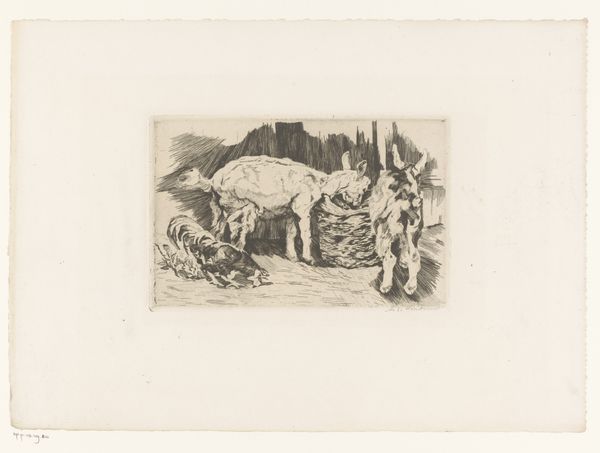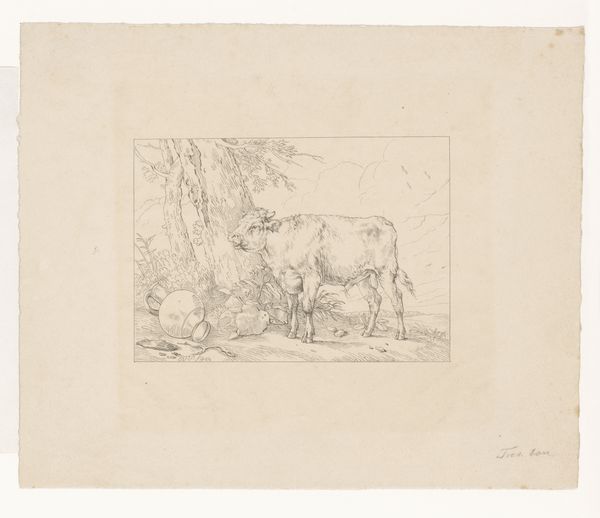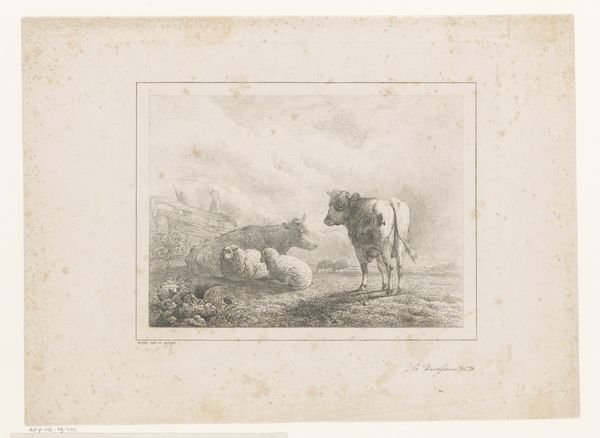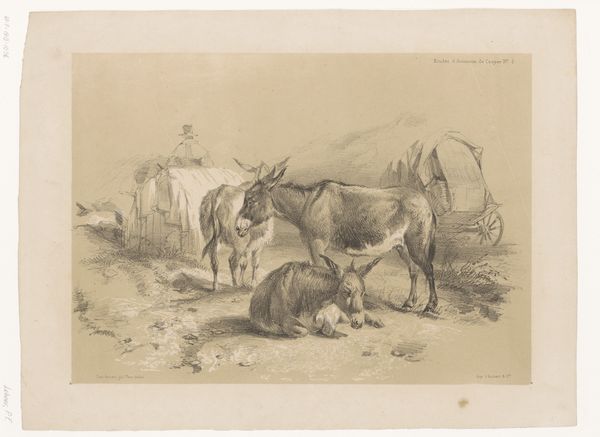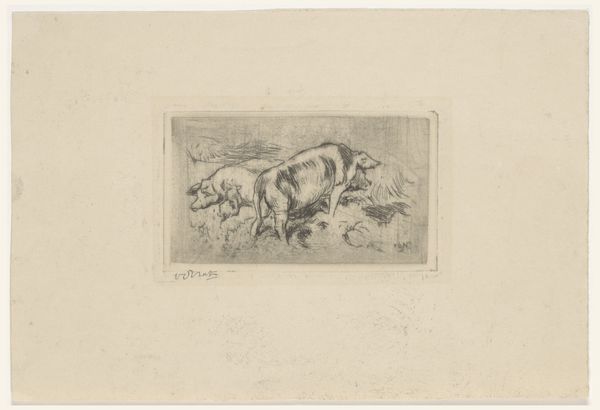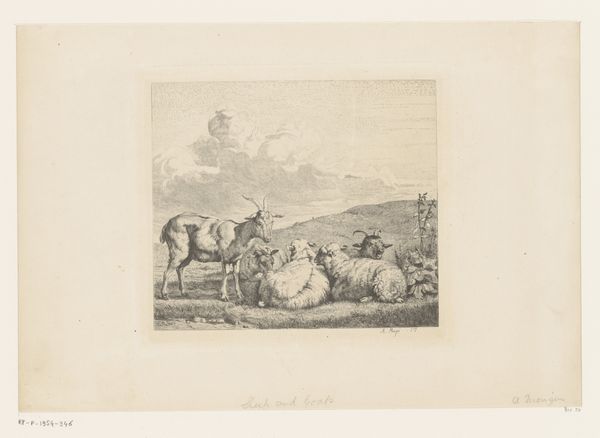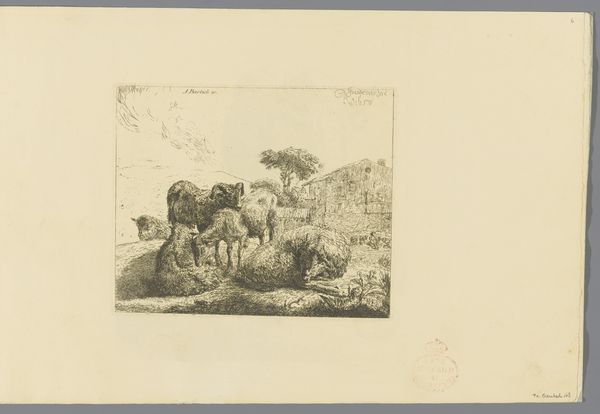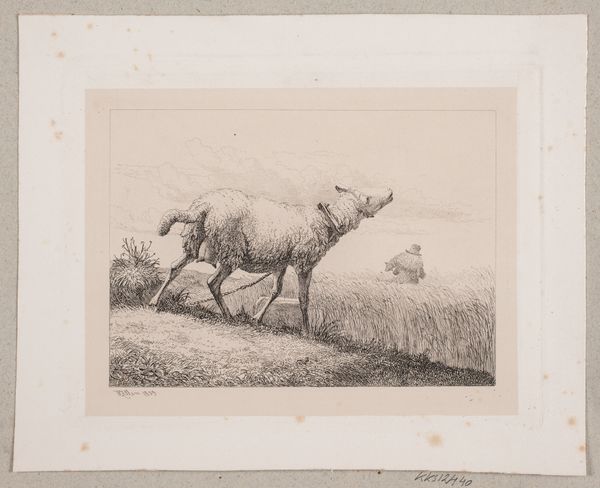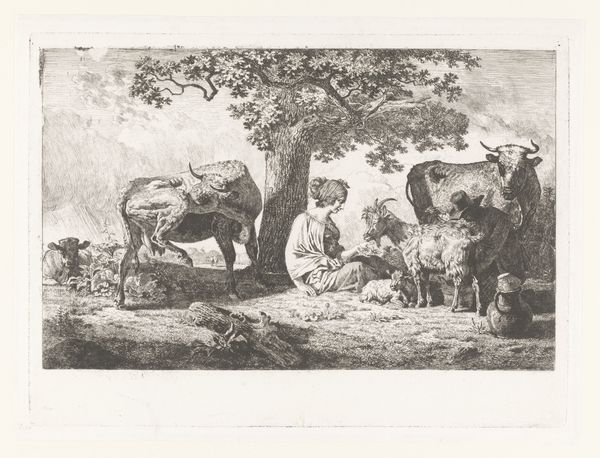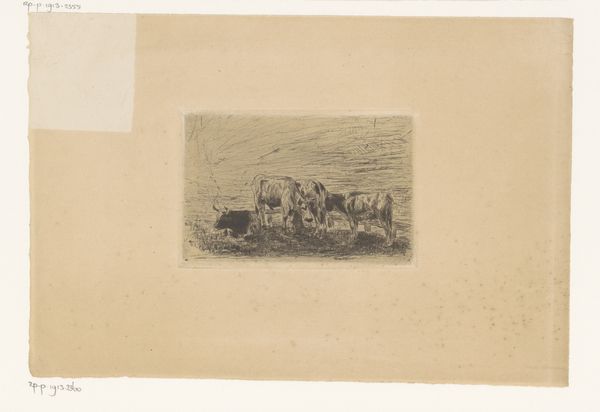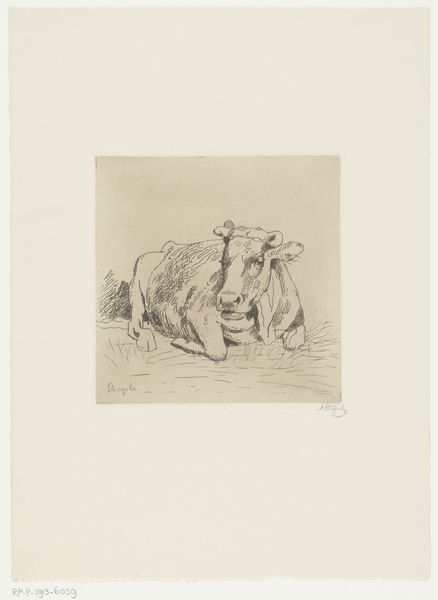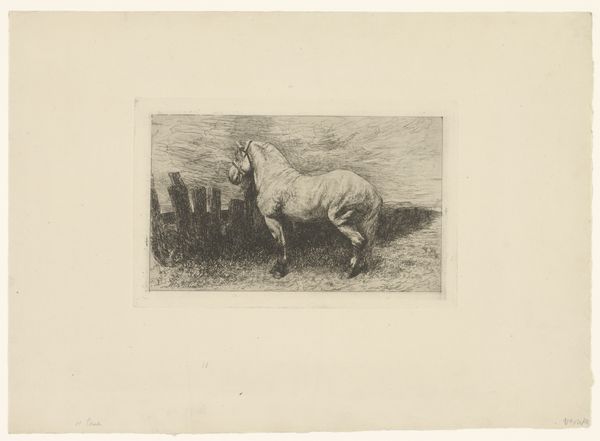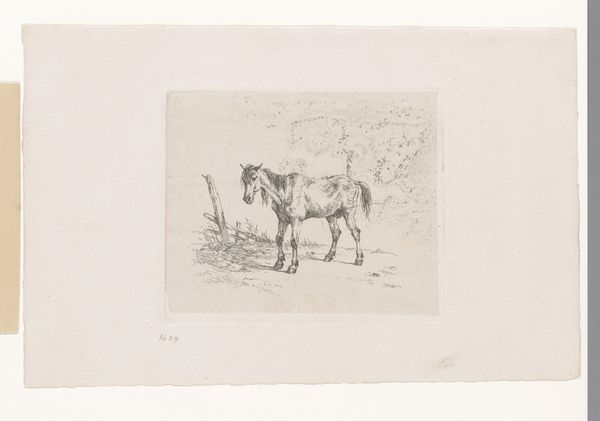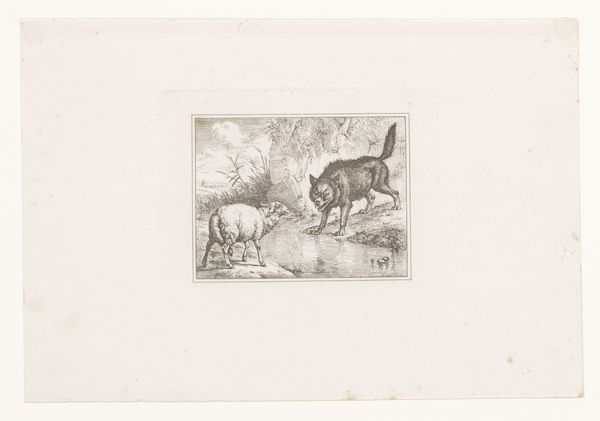
drawing, graphite
#
drawing
#
animal
#
pencil sketch
#
landscape
#
graphite
#
watercolor
Dimensions: height 179 mm, width 200 mm
Copyright: Rijks Museum: Open Domain
Editor: This is "Ezels bij een trog," or "Donkeys at a Trough," by Félix Brissot de Warville, made around 1880. It appears to be a graphite drawing, and it’s quite delicate. I'm struck by the weariness in the animals, even though they’re just drinking water. How do you interpret this work? Curator: It's easy to overlook drawings of animals from this period, but I see it as Brissot de Warville commenting on labor and the social hierarchy of the time. These donkeys represent the working class, their thirst symbolizing a deeper need, perhaps for fairer treatment or recognition. Consider the Industrial Revolution – how does this pastoral scene contrast with the rapidly changing urban landscape? Editor: I hadn't thought of it that way, as a social commentary! I was more focused on the immediate image of thirsty animals. So, their weariness might be a commentary on the burdens they carry? Curator: Precisely. And beyond that, we can see the landscape in the background, almost barren. It isn’t a scene of plentiful nature, further underlining the hardship. Who benefits from their labor, and what are they left with? Do you see any symbolism within the trough itself – its solid construction amidst this desolate scene? Editor: Hmm, perhaps the trough symbolizes a limited, almost grudging, provision? It seems a small reward for hard labor. Curator: Exactly. Brissot de Warville may be prompting us to consider the ethics of our relationship with animals, and, by extension, with each other. How do societal structures influence how we treat the marginalized and those in service? Editor: This has completely shifted my perspective! I appreciate seeing how a simple drawing can hold such complex social and political commentary. Curator: It's about looking beyond the surface, always asking 'who holds the power?' and how it impacts lived experiences. A good question to bring to art in all forms, wouldn’t you agree?
Comments
No comments
Be the first to comment and join the conversation on the ultimate creative platform.
